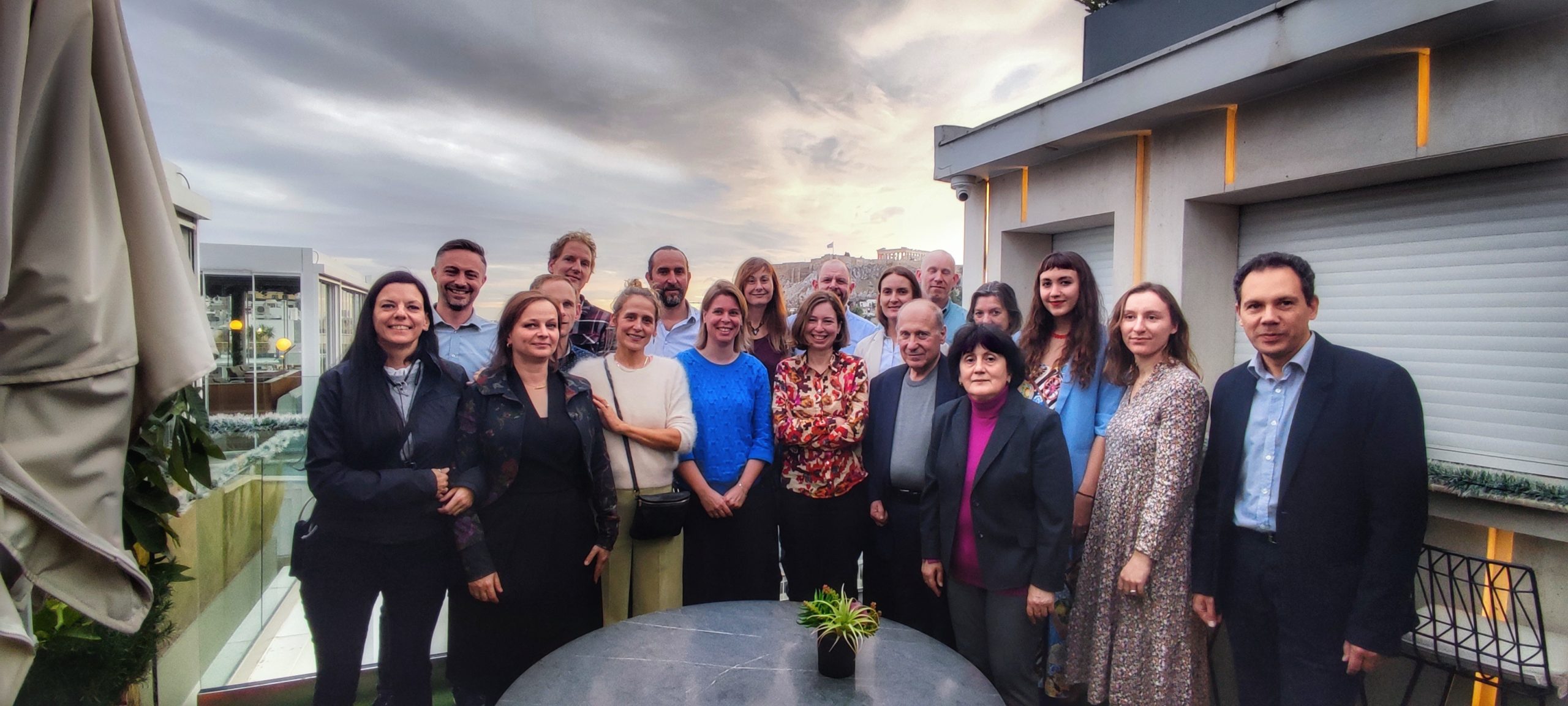The Mediterranean Information Office for Environment, Culture, and Sustainable Development (MIO-ECSDE) successfully hosted the Annual General Assembly for the SOS-ZEROPOL2030 project, a pioneering EU Horizon2020 initiative. With the project now at its midpoint, the assembly provided an opportunity to evaluate achievements and chart the next steps in its ambitious mission to achieve zero pollution in European seas.

A Holistic Approach to Tackling Marine Pollution
At its core, SOS-ZEROPOL2030 aims to develop a holistic zero pollution framework to guide the European Union in achieving zero pollution in its seas.
Key highlights of the project’s progress were shared during the assembly, including:
Understanding Barriers and Identifying Interventions
The work undertaken so far has led to significant insights into marine pollution management and governance structures across four priority pollutant groups.
Key deliverables from this work include:
- 1 The EU Zero Pollution Ambition: This comprehensive document outlines the policy framework and legislative instruments that shape Europe’s environmental pollution strategy. It serves as a foundational reference for aligning efforts to achieve the EU’s zero pollution targets.
- 2 The EU Governance Landscape for Zero Marine Pollution: This report examines the existing governance structures within the EU, highlighting best practices and identifying constraints in current governance efforts.
Capitalizing on Best Practices and Co-Developing a Blue-Green Transition Roadmap
Building on the comprehensive analysis of the European policy landscape, the SOS-ZEROPOL2030 project has taken a significant step forward by evaluating sustainable and effective strategies to mitigate marine pollution. These efforts have been enriched by insights gained through active stakeholder engagement during the first edition of the project’s innovative Living Labs.
The first two labs, focused on addressing the issue of PFAS, were held in the Netherlands (North-East Atlantic Sea) and Bulgaria (Black Sea). The third living lab which addressed the challenge of Tyre Wear Particles (TWPs), was organized in Greece (Mediterranean Sea). The Living Labs provided a collaborative and hands-on environment where diverse stakeholders—ranging from policymakers and industry representatives to community leaders and researchers—came together to co-create solutions.
As part of the SOS-ZEROPOL2030 project, a ground-breaking study explored public risk perception and support for environmental policies addressing four critical pollutants: microplastics, PFASs, eutrophication, and underwater noise. The survey was conducted in Belgium, Bulgaria, Greece, Ireland, and the Netherlands. With insights from 4,400 participants, the study explored factors influencing policy support, behavioral intentions, and perceptions of fairness and effectiveness.
Building the Knowledge Base for Practical Guidelines to “Turn Off the Pollution Tap”
Integrated case study assessments have been elaborated giving shape and form to the foundation for informed development of guidelines that focus on “turning off the pollution tap” from source to sea.
A key outcome of this work is Deliverable D4.1, summarizing knowledge and outcomes from case study analyses. Part A focuses on PFAS, while Part B addresses TWPs. This deliverable is expected to be publicly available by the end of the year. The deliverable comprises four primary components: (i) Mapping of primary emission sources along the value chain, (ii) Determination of environmental risk, (iii) Mapping of existing value chain and technological actions and strategies for emission reduction, and (iv) Mapping of current governance strategies/efforts/arrangements.
Driving Societal Impact and Raising Awareness
SOS-ZEROPOL2030 has built strong communication and dissemination pathways designed to maximize impact. These efforts are bolstered by tailored resources and active engagement with stakeholders. Two key tools driving these initiatives are:
- The story map “Rolling on the River: The journey of tyre wear particle pollution”
- The story map “PFAS – our intimate relation with these forever chemicals”
What’s Coming Next?
In 2025, SOS-ZEROPOL2030 will see significant developments, including the launch of the Zero Pollution Online Hub, featuring valuable educational resources on the four case study pollutants. The project will also host the 2nd edition of the Living Labs, and organize the Zero Pollution Parliament to continue advancing its mission towards a pollution-free European sea.
Stay tuned at: https://soszeropol2030.eu
Read in French here